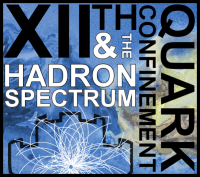Speaker
Description
I begin with an introduction to deep learning methods and the kinds of problems in particle physics to which the methods could be usefully applied, such as searching data for evidence of new physics. Then I discuss the Bayesian connection. I conclude with a perspective on what data analysis might look like in the not too distant future.
Summary
The availability of low cost, massively parallel, computing systems has finally made feasible the routine use of large scale inference engines, based, in part, on deep learning methods. Deep learning systems are successfully being deployed on tasks, which, while routine, nevertheless require high-level human expertise. In this talk, I try to make two points. First, particle physicists should embrace the new paradigm, for example, by moving aggressively to automate the (artificially) intelligent searching and classification of data. Second, in the context of particle physics, deep learning systems are nothing more than high-dimensional Bayesian inference engines. From this perspective, deep learning is not so much a revolution as a coming of age of ideas that have been around for a long time, but whose routine implementation required the advent of the massively parallel computing systems available today.
